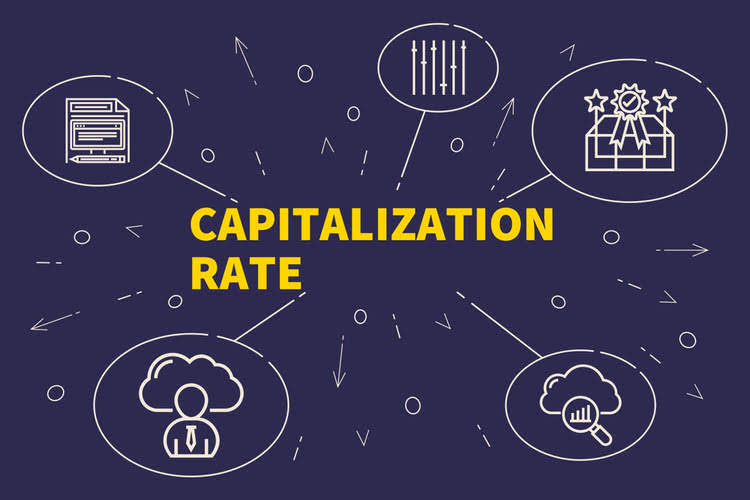
They guide accountants in managing conflicts of interest, maintaining confidentiality, and undertaking their duties responsibly. Accounting educators are encouraged to develop experiential learning exercises that directly involve students in changing their work environment and enhancing workplace culture. Along these lines, seasoned professionals should be invited into the classroom to share their experiences with students so they can learn about role models, an essential characteristic of moral courage. Several accounting educators have started to research how to integrate the GVV approach into accounting ethics education. It is too soon to know how many accounting programs use such an approach and additional research is needed in this area.
Un aspecto interesante sobre la salud masculina es que muchos hombres experimentan problemas relacionados con la función sexual a lo largo de sus vidas. De hecho, se estima que una de cada cuatro personas que buscan tratamiento para esta condición son menores de 40 años. Aunque existen diversas causas para estos problemas, desde factores psicológicos hasta afecciones médicas, la conversación abierta sobre el tema es esencial para el bienestar. Algunos hombres pueden buscar tratamientos como el medicamento que se puede obtener al “, aunque es importante consultar a un médico antes de tomar cualquier decisión. La educación y el apoyo son fundamentales para abordar este tema común y sensible.
La impotencia sexual es un problema que afecta a millones de hombres en todo el mundo, y puede ser causada por múltiples factores, como el estrés, la ansiedad o problemas de salud subyacentes. Curiosamente, el tratamiento de esta condición a veces se entrelaza con medicamentos que no son específicamente para este fin, como el uso de ciertos fármacos para la demencia. Por ejemplo, algunos hombres han recurrido a estrategias inusuales para encontrar soluciones, incluso intentando “, aunque este medicamento no está diseñado para tratar la impotencia. Es importante que las personas afectadas busquen el consejo de un profesional de salud para abordar adecuadamente esta problemática y evitar automedicarse.
Un dato interesante es que muchos hombres no buscan tratamiento para problemas de erección debido a la vergüenza o el estigma social. Sin embargo, hay varias opciones disponibles, incluidas las soluciones que se pueden obtener en línea, como es el caso de aquellos que desean ***. La falta de información y el miedo a la consulta médica a menudo impiden que los hombres tomen medidas para mejorar su salud sexual.
La disfunción eréctil puede ser un signo de problemas de salud más amplios, como enfermedades cardiovasculares o diabetes. Además, el tratamiento de esta condición a menudo implica un enfoque multidisciplinario, que puede incluir cambios en el estilo de vida y, en algunos casos, la medicación. Es interesante saber que algunas personas consideran alternativas como ciertos antidepresivos, aunque su uso debe ser supervisado por un profesional. Por ejemplo, al buscar opciones para mejorar su bienestar sexual, algunos pueden investigar sobre cómo “ para ver si podría ser beneficioso. Sin embargo, es esencial consultar a un médico antes de tomar cualquier medicamento para evitar efectos adversos.
La disfunción sexual puede afectar a hombres de todas las edades, aunque es más común en adultos mayores. Este problema no solo tiene repercusiones físicas, sino también emocionales, ya que puede provocar ansiedad y afectar la autoestima. Hay múltiples causas que pueden contribuir a esta condición, desde problemas de salud subyacentes hasta factores psicológicos. Algunos hombres buscan formas de tratar esta situación, incluyendo la opción de comprar medicamentos como el mencionado por quienes desean encontrar soluciones efectivas. Es esencial que, antes de decidirse a “, se consulte a un profesional de la salud. Al abordar este tema con un médico, se pueden evaluar las mejores oportunidades de tratamiento y obtener el apoyo adecuado.
- In particular, it involves students directly in the decision-making process by expressing their values when ethical conflicts exist.
- Regulatory and professional standards play a crucial role in maintaining the integrity and reliability of advanced accounting practices.
- The goal of ethics education regarding practical wisdom is to develop moral courage through experiential learning exercises.
- Organizations can support whistleblowing by establishing clear reporting channels and fostering a culture of openness.
- HighRadius stands out as a challenger by delivering practical, results-driven AI for Record-to-Report (R2R) processes.
- Ethical practices in accounting involve adhering to principles such as honesty, transparency, and accountability.
What is the main problem of accounting ethics?
- These scandals highlight the importance of strict adherence to ethical standards and the need for robust oversight mechanisms.
- Taken together, the California requirement is consistent with the sandwich approach advocated by Armstrong.
- Shaub describes an accounting ethics course that seeks to help students develop practical wisdom by voicing their opinions and practicing them in the classroom primarily through case studies.
- Build connections with other professionals in diverse industries that will stay with you throughout your career.
- Organizational policies often provide guidance on handling complex situations, including protocols for consulting senior management or ethics committees.
- Ethical guidelines ensure that accountants maintain integrity, transparency, and accuracy in their work.
- The statements are then scored and a DIT value determined (James Rest, Development in Judging Moral Issues, University of Minnesota Press, 1979).
They help maintain public confidence and support the proper functioning of financial markets. Key ethical guidelines and standards in accounting include Generally Accepted Accounting Principles (GAAP), International Financial Reporting Standards (IFRS), and the AICPA Code of Professional Conduct. A lack of integrity in accounting can lead to financial scandals, such Accounts Payable Management as fraudulent reporting and embezzlement. This can result in significant financial losses, legal consequences, and a loss of public trust. While adhering to accounting principles is vital for ethical accounting, relying solely on manual processes, from reconciliation to financial closure, often results in inefficiencies, errors, and potentially fraudulent activities.
La disfunción eréctil es un problema que afecta a millones de hombres en todo el mundo, y su prevalencia aumenta con la edad. De hecho, se estima que alrededor del 50% de los hombres mayores de 40 años experimentan algún grado de este problema. Es interesante señalar que factores como el estrés, la ansiedad y problemas de salud subyacentes, como enfermedades cardiovasculares, pueden contribuir significativamente a esta condición. Muchos hombres buscan soluciones, y algunos consideran la opción de medicamentos para ayudar en esta situación. Por ejemplo, hay quienes investigan sobre cómo ” para abordar problemas relacionados con la salud prostática, que a menudo están interconectados con la disfunción eréctil. Sin embargo, siempre es recomendable consultar a un médico antes de iniciar cualquier tratamiento.
Existen varios factores que pueden contribuir a problemas de salud sexual en los hombres, y uno de ellos es la ansiedad. Sorprendentemente, algunos hombres pueden optar por buscar soluciones alternativas cuando enfrentan dificultades, lo que los lleva a considerar opciones como ” para tratar sus síntomas. Es fundamental entender que cada caso es único y que siempre es recomendable consultar a un profesional de la salud para obtener el tratamiento adecuado.
Un dato interesante es que las dificultades en la función eréctil pueden estar relacionadas con problemas de salud subyacentes, como enfermedades cardíacas o diabetes. Además, el colesterol alto y la presión arterial elevada también pueden afectar la circulación sanguínea, lo que es esencial para una erección. Muchas personas buscan soluciones y tratamientos alternativos, y algunos optan por opciones como “. Sin embargo, es fundamental que se digan a los médicos sobre cualquier medicamento que consideren tomar, ya que la auto-medicación puede tener riesgos asociados.
Vendor Code of Conduct
By providing regular workshops and seminars, organizations can enhance their employees’ understanding of ethical dilemmas and equip them with the necessary skills to make ethical decisions. Consequently, any undisclosed arrangement or subtle promise of future business engagements contradicts ethical standards in accounting. Upholding ethical integrity mandates that auditors maintain complete impartiality and independence in their assessments, devoid of any undisclosed influences or inducements.
Strategies for Promoting Ethical Practices

It requires professionals to act honestly, transparently, and in accordance with moral and ethical standards, regardless of external pressures or personal interests. Robust internal controls are essential for preventing fraud and ensuring accurate financial reporting. By implementing segregation of duties, regular audits, and thorough review processes, organizations can minimize the risk of unethical behavior and detect any irregularities early on. Established to ensure the integrity and trustworthiness of the profession, ethical principles in accounting serve as Online Accounting guiding beacons.

Cash Application Management
By investigating complaints and imposing sanctions when necessary, they help maintain public trust in the accounting profession. These enforcement actions serve as a deterrent against unethical behavior, signaling that integrity is non-negotiable in the field of accounting. Integrity in accounting is fundamental to maintaining trust and transparency within the financial world.

Objectivity
By enhancing their professional competence, accountants integrity accounting can provide accurate and reliable financial information to stakeholders. A dedication to honesty and integrity discourages unethical behaviors, safeguarding the interests of the company, shareholders, and stakeholders from financial malpractice. Integrity requires accountants to be honest and straightforward in all professional relationships, ensuring information is free from bias and misrepresentation. The principle of full disclosure under GAAP mandates that all relevant financial information be included in reports, allowing stakeholders to make informed decisions. Integrity Taxes & Accounting’s goal is to provide help in reaching your financial goals along with tax planning, compliance and accounting. By entrusting your tax preparation and payroll management to Integrity Ag Business Services, you can have peace of mind knowing that your business is compliant with all tax laws and regulations.
Why is ethics training important in accounting firms?

Ethics plays a vital role in accounting by preventing harmful financial practices that could affect businesses negatively. Following ethical principles not only helps in short-term success but also supports long-term achievements, earning trust from consumers and meeting stakeholders’ needs. This principle calls for detailed documentation and precise recording of transactions in accordance with established accounting standards and principles. Any errors, inaccuracies, or omissions should be promptly corrected to maintain the reliability of financial statements. This principle also underscores the importance of integrity in record-keeping and discourages any manipulation or falsification of data. Accountants should continuously update their skills and knowledge to stay relevant and competent.
- Upholding ethical principles ensures that accountants make decisions that are in the best interest of all stakeholders, thereby maintaining the profession’s reputation.
- Adhering to accounting standards and ethical guidelines, supported by robust internal controls and a culture of ethical behavior, helps counteract such pressures.
- These principles ensure fairness, transparency, and accountability in financial reporting.
- By examining real-world scenarios, these studies provide valuable insights into how ethical dilemmas are navigated in complex financial environments.
- Exercising due diligence is critical when handling complex financial transactions or tax matters.
BY ROLE
The case study facilitates the exercise of moral will and moral skill by developing a script to voice values and positively influence ethical decision making. The Libby-Thorne model incorporates virtue concepts into Rest’s model through the last two phases—ethical intent and ethical action. What stands out the most are the recommendations to develop a sense of moral obligation and the abilities to deal with ethical conflicts or dilemmas.
yOUR bUSINESSaCCOUNTING pARTNERS
Embracing ethical principles in accounting holds the potential to elevate your organization’s integrity. By instilling a culture of ethical conduct in financial management, you lay the groundwork for trust, transparency in financial disclosures, improved employee morale, and sustainable financial growth. Whistleblowing is vital for uncovering unethical practices within organizations, ensuring transparency and accountability. Accountants are uniquely positioned to identify and report fraudulent activities, though doing so can involve personal and professional risks.